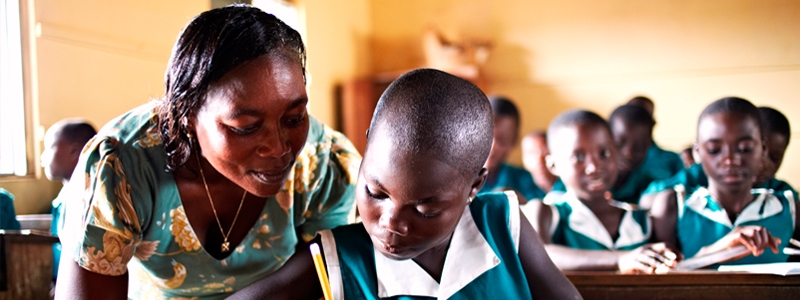Problem: Sub-Saharan Africa's rural communities suffer from poverty as well as absence lack of local hospitals, schools and public transportation. Literacy rates are minimal. Children need to walk great distances to reach their schools, where they generally are met with few teachers and inadequate facilities. Girls are more vulnerable in this situation, and are usually the first to abandon school and suffer the consequences of early pregnancy, marriage and the risk of being infected by the AIDS virus. Founded in 1993 by Ann Cotton, a British teacher, Camfed fights poverty and inequality through a holistic, community based approach. The organization was cofounded jointly with communities in Zimbabwe, Zambia, Ghana, Tanzania and Malawi in order to fully tend to their needs on a local scale.

Solutions: The project offers financial support, making it possible for the girls to continue their schooling from the last years of elementary school through to high school. Camfed pays for school fees, uniforms and books, among other expenses. Each school has a qualified teacher that can mentor the girls and act as a role model. Activities are also provided for the girls outside of the classroom and include courses in the sciences, mathematics and technology. Their parents are encouraged to participate in support groups in order to learn how they can contribute to their child's continued academic success. Camfed helps schools by providing books, black boards and water. The organization also raises awareness of hygiene, health and the prevention of child abuse.
After the conclusion of their studies, the children participate in an educational program that is focused specifically at them, within which they learn how to manage their own money and become entrepreneurs, teachers, public health activists and leaders in their communities. They also receive incentives to open their own businesses. A group of women in Zambia that were aided by Camfed established, for example, a pre-school in their community for the children of poor families.
Outcomes: Statistics show that girls that have had schooling earn up to 25% more and reinvest 90% of what they earn in their families. These girls are also three times less likely to become HIV positive, and are more likely to have fewer children. When they do become mothers, their children are healthier and are 40% more likely to live past the age of five. The project has provided direct support to over 1.4 million elementary and high school students and more than 3.5 million children have benefited from an innovative academic experience. In all, there are more than 5,000 partner schools. More than 90% of the girls that are aided by the organization conclude their schooling. They have even begun to dream about their futures. The women that have graduated from Camfed compose a Pan-African association that consists of more than 30,000 members. The majority of them work either at the school that they attended or within their communities, training new generations of students. Ann Cotton, who created the project, received the 2014 WISE Prize for Education.





